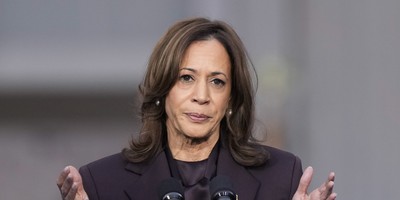It’s hot this summer, with public anger toward Washington — the White House, Congress, Democrats, Republicans — bubbling up like an asphalt parking lot.
After passing TARP and the stimulus and a federal takeover of healthcare, all of which were done over the objection of the American people and all with political pork stuffed every which way into the process, this past week Congress passed a financial regulatory overhaul that might just possibly possess majority public support.
The Washington Post, big government’s paper of record, called the 2,300-page financial reform legislation a “significant legislative victory for President Obama, who had pledged to rein in the reckless Wall Street behavior behind the crisis and to right the government regulation that failed to prevent it.”
As a fan of the free market, I too believe Wall Street acted recklessly. For their recklessness, the people involved should have paid a price . . . in the marketplace. But I also recognize that government not only enabled this gambling attitude among financial players, it even encouraged their mania. Then, when the financial markets blew up, the Feds bailed out those responsible.
I wonder: What happens when bad behavior is handsomely rewarded?
But now, with this new reform bill, the problem is fixed. Never will there be another economic bust; nor any need for those despicable bailouts. [Stop laughing, and read on.]
Well, the Wall Street Journal summed it up nicely:
Despite creating the new consumer watchdog, the bill leaves America's patchwork regulatory framework largely intact, and most of the players will be familiar. That has irked critics on the left and right who say one of the bill's key flaws is that it relies on the judgment of officials rather than hard rules. . . . Conservatives worry regulators will throttle the industry. Liberals worry they'll be co-opted by banking lobbyists.
Recommended
What if, on this issue, bipartisan fears are right? Both liberals and conservatives will likely be proven clairvoyant: Regulators will throttle much of the financial industry while being co-opted by the better connected interests. Arbitrary government at its worst.
Sen. Chris Dodd (D-Conn.), author of the bill, is so unpopular in his own state that he chose not to stand for re-election. But he could muster an arrogant scoff at the argument that the legislation leaves too much of the new regulatory regime to be slapped together by regulators with little guidance from Congress. “It’s the dumbest argument I’ve ever heard,” he told reporters. “What do they expect me to write, a 100,000-page bill? This is far beyond the capacity, the expertise, the knowledge of a Congress . . .”
What do we expect? The most arrogant, wasteful, out-of-touch institution on the planet seems an unlikely candidate to “rein in” the financial industry. Or the oil industry. Or any special interest.
Not unless by “rein in” one means for the purpose shaking down more campaign contributions.
Meanwhile, after President Obama lectured financial firms on risky business practices, he darted off to Michigan to place a $2.4 billion bet (with our tax dollars) on developing batteries for electric cars. The new Bush-Obama American economic system makes the president the Investor-in-Chief.
But will the investment fetch a return? In the non-government world that’s sort of the point, after all.
Menahem Anderman, the founder and chief executive of Total Battery Consulting, admits, “Basically, there’s really no proven market. . . .” A spokesperson for Johnson Controls, Inc. , another big company in the business, thinks that by 2015 supply of batteries will outstrip demand by two-to-one.
Is the notion of supply and demand really too advanced for the big-spending Administration and Congress?
When it comes to politics, Democrats and Republicans are certainly more sophisticated. In 2006, the Democrats strategically decided to avoid presenting their own agenda for making government work better, so they could instead focus the voters’ attention on the poor performance of Republicans. Numerous scandals helped. Now debate rages among Republicans about doing the same to Democrats.
Let’s hope, instead, that Republicans do come forward with an agenda. Voters deserve a better choice than between nothing and something rotten.

























Join the conversation as a VIP Member